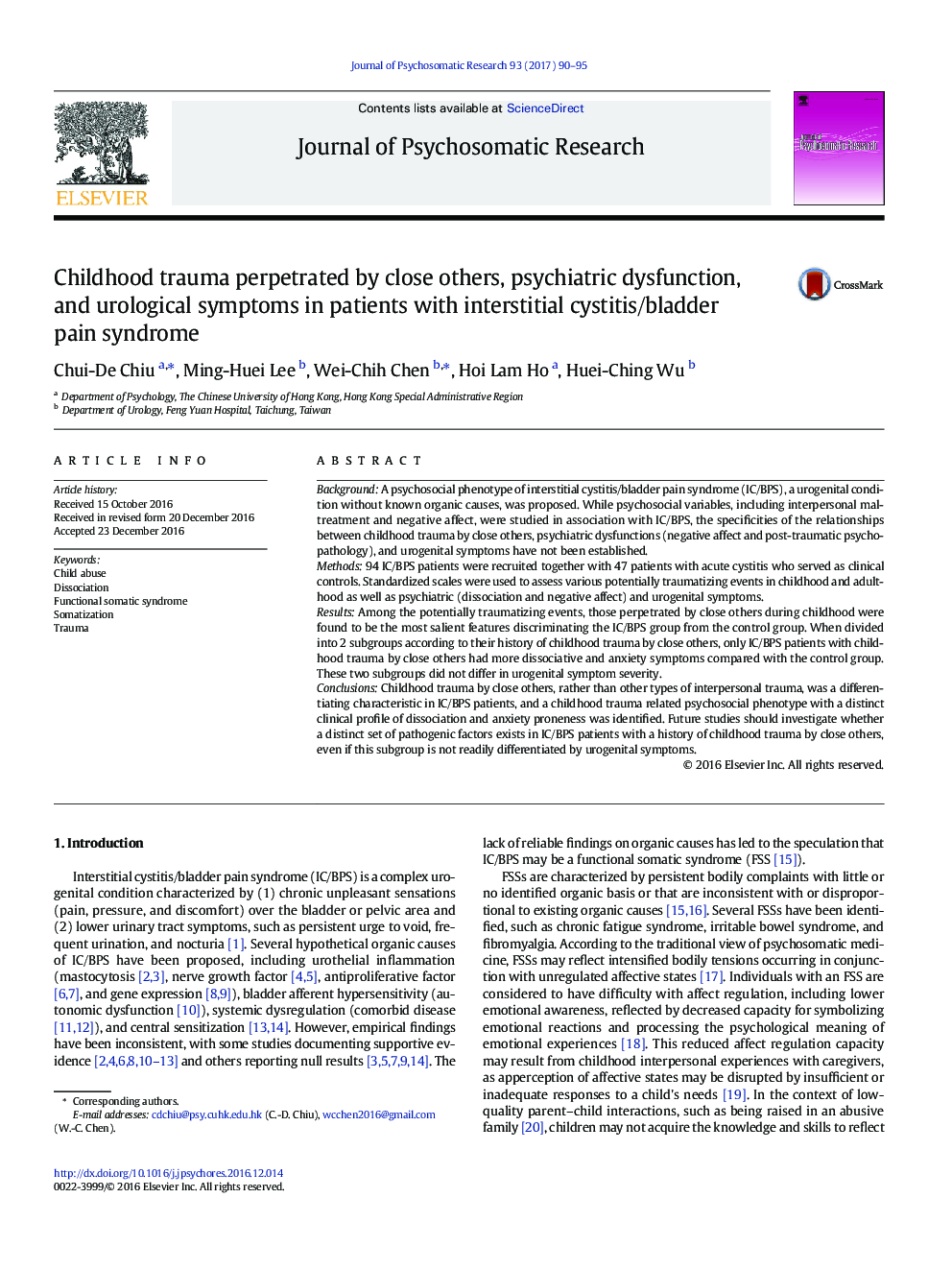| Article ID | Journal | Published Year | Pages | File Type |
|---|---|---|---|---|
| 5045853 | Journal of Psychosomatic Research | 2017 | 6 Pages |
â¢Childhood trauma by close others, but not other types of trauma, was more prevalent in patients with IC/BPS than patients with acute cystitis.â¢IC/BPS patients with this type of trauma differed from other patients with IC/BPS or with acute cystitis in dissociative pathology and anxiety.â¢The manifest urogenital symptoms, however, could not discriminate between IC/BPS patients with and without this type of trauma.
BackgroundA psychosocial phenotype of interstitial cystitis/bladder pain syndrome (IC/BPS), a urogenital condition without known organic causes, was proposed. While psychosocial variables, including interpersonal maltreatment and negative affect, were studied in association with IC/BPS, the specificities of the relationships between childhood trauma by close others, psychiatric dysfunctions (negative affect and post-traumatic psychopathology), and urogenital symptoms have not been established.Methods94 IC/BPS patients were recruited together with 47 patients with acute cystitis who served as clinical controls. Standardized scales were used to assess various potentially traumatizing events in childhood and adulthood as well as psychiatric (dissociation and negative affect) and urogenital symptoms.ResultsAmong the potentially traumatizing events, those perpetrated by close others during childhood were found to be the most salient features discriminating the IC/BPS group from the control group. When divided into 2 subgroups according to their history of childhood trauma by close others, only IC/BPS patients with childhood trauma by close others had more dissociative and anxiety symptoms compared with the control group. These two subgroups did not differ in urogenital symptom severity.ConclusionsChildhood trauma by close others, rather than other types of interpersonal trauma, was a differentiating characteristic in IC/BPS patients, and a childhood trauma related psychosocial phenotype with a distinct clinical profile of dissociation and anxiety proneness was identified. Future studies should investigate whether a distinct set of pathogenic factors exists in IC/BPS patients with a history of childhood trauma by close others, even if this subgroup is not readily differentiated by urogenital symptoms.
Graphical abstractPsychiatric dysfunctions, including dissociative pathology and anxiety proneness, appeared to be an exclusive feature of interstitial cystitis (IC) patients with a history of childhood trauma perpetrated by close others (CTÂ +) compared to IC patients without the history (CTÂ â) and clinical controls with acute cystitis (AC).Download high-res image (172KB)Download full-size image
